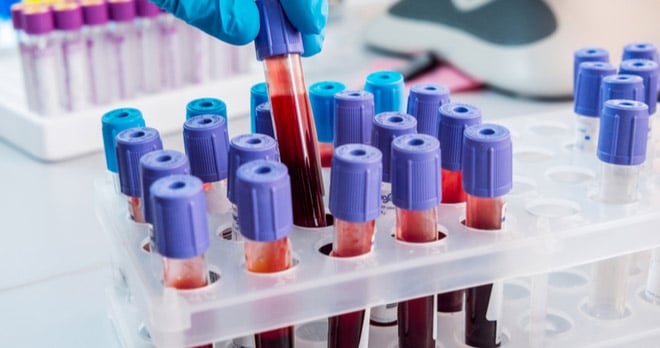Covid-19 has exposed real issues with cancer care in the UK – the Government must get a handle on it

The fact that the Covid-19 pandemic has caused life-threatening delays to cancer testing and treatment has now been widely commented upon, and yet it’s equally clear that the scale of the problem is only just becoming apparent. It has been reported though that more than a million laboratory samples from cancer screening services are expected in pathology laboratories, and in the region of 850,000 delayed MRI and CT scans need to be carried out.
This gargantuan testing backlog is exacerbated by the fact that most laboratories have a crippling shortage of pathologists, and staff are said to already be working additional unpaid hours in a bid to catch up.
Dealing with the outstanding scans would require an increase in radiology posts of approximately a third nationally – which clearly is an unrealistic proposition – but there is an additional hurdle to overcome: at present precautions to protect against the spread of coronavirus limit significantly the number of scans which can be carried out. The Royal Colleges of Pathologists and Radiologists are warning that cancers will therefore go undiagnosed and treatments are likely to be further delayed for all patients as a consequence.
One NHS radiologist, whose unit alone has delayed more than 9,000 scans, told The Independent:
“It is an absolute catastrophe. There are patients waiting to know if they have cancer or not and we can’t say when the scan is even going to get done. There will be delays, and a delayed diagnosis could mean a cancer patient goes from a curative to non-curative diagnosis. That’s devastating. I think it is inevitable and probably has already happened.”
In addition to a delay in diagnosis for those presenting symptoms, coronavirus has devastated screening programmes designed to pick up early warning signs of cancer. Because of the pandemic, national screening for conditions like bowel and cervical cancer, as well as referrals from GPs, stopped. Cancer Research UK has warned that more than 2 million people could be waiting for tests.
Not necessarily a new problem
The issue with the shortage of pathologists is not new and has been exposed, rather than caused by, the coronavirus pandemic.
Professor Jo Martin, president of the Royal College of Pathologists has said that workforce shortages had been building for years without not enough training places for junior doctors allocated to pathology, adding:
“I think some hospitals don’t always appreciate quite how acute some of these workforce shortages are. I’ve got colleagues who work at the weekend unpaid because they’ve got a team meeting on Monday and they don’t want the patients to have to wait.”
Identifying patients with the most urgent need
It can readily be seen that, with such shortages of resources, it would be advantageous to be able to identify the patients who are most urgently in need of tests, scans, or indeed treatment.
While this may not be easily achieved in all fields, research carried out at the Royal Marsden Hospital has led to an algorithm which identifies women most in need of chemotherapy for breast cancer. The majority of such treatments were paused to reduce the risk of patients and clinicians contracting coronavirus, and to create capacity to treat those who had contracted the virus.
About 70 per cent of breast cancer patients have oestrogen-positive or “HER2 negative” cancers and have been prescribed hormone therapy, known as neoadjuvant endocrine therapy (NeoET), to hold the disease at bay. The research from the Royal Marsden Hospital and Institute of Cancer Research uses an algorithm to help identify the women in this group who cannot wait six months.
Professor Mitch Dowsett, head of the Ralph Lauren Centre for Breast Cancer Research at the Royal Marsden, said:
“Overall, we can identify the 15 per cent of the women who are most at risk of relapsing on just NeoET treatment and should be prioritised for surgery or neoadjuvant chemotherapy.”
Baroness Morgan, chief executive at Breast Cancer Now, has commented that the algorithm could help patients worldwide.
Prioritising resource
It is unlikely that the wider issue of chronic shortages and backlogs can be addressed quite so scientifically as in the case of chemotherapy for breast cancer. The nature of testing and scanning is that it is designed to find out something which is not yet known. But clearly prioritising resource is something that the government needs to get a handle on, as quickly as possible.
Coronavirus has already claimed so many victims that it is crucial that action is taken to avoid a further tragic, and preventable, loss of life.